Grammar for IELTS When to use 'ing' forms and infinitives IELTS with Fiona Learn English

Grammar for IELTS When to use 'ing' forms and infinitives IELTS with Fiona Learn English
I like to go to the dentist once a year. When you say like to you mean that you like the idea of doing it, because it is the right thing to do; like going to the dentist. It is sth. advisable, but you don´t really enjoy it. You use like + ing, when you are expressing an idea you do like: I like skiing.
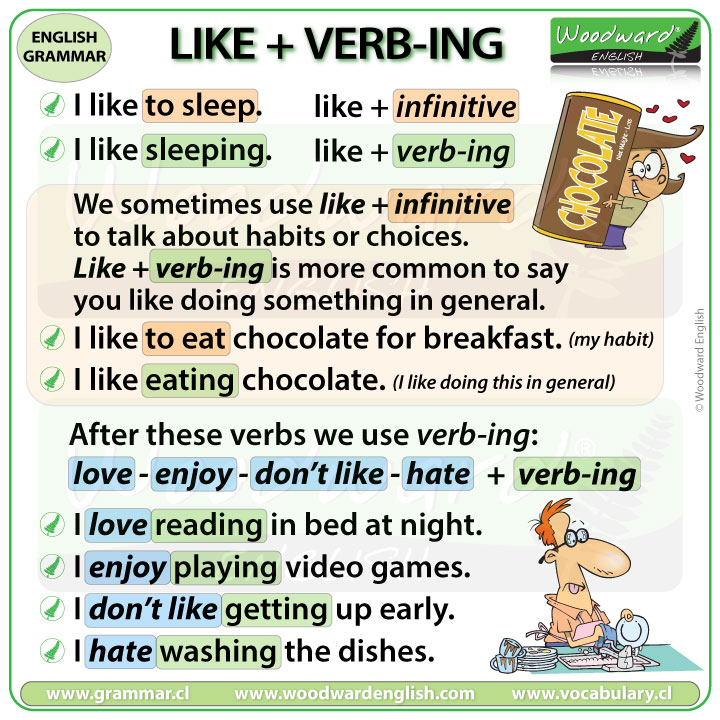
Like + VerbING Like + Infinitive Enjoy + VerbING Woodward English
1 Answer Sorted by: 2 No. to get up is a full infinitive used as a noun phrase, whereas getting up is a gerund (also a noun phrase). Using the gerund is often considered more natural in this case, but it depends who you talk to. Either way, the meaning is the same. Edit: In this particular case, I still think the meaning is the same.
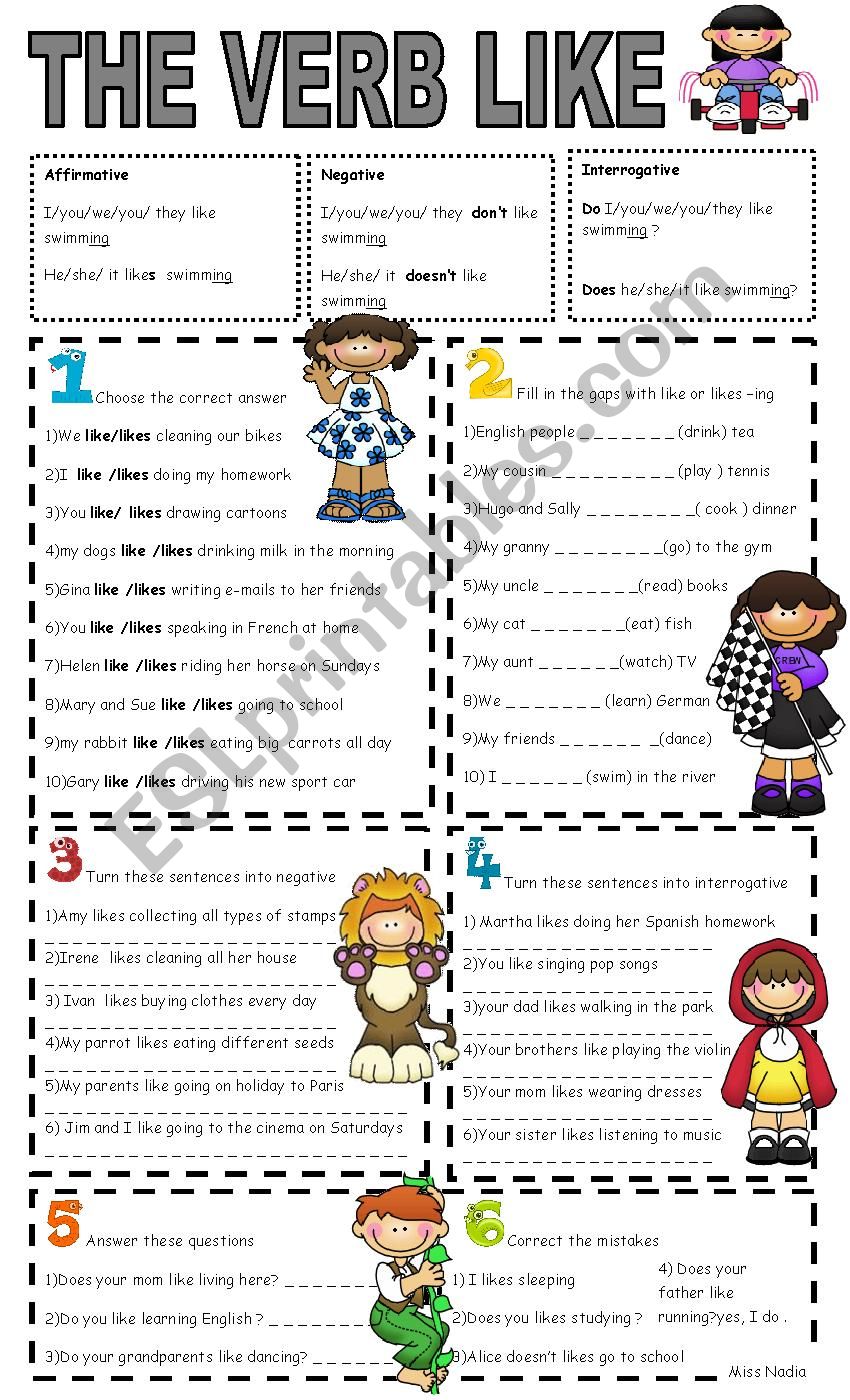
like+ing ESL worksheet by vampire.girl.22
Apr 1, 2021 #2 There are several existing threads on this subject. In most situations there is almost no difference, but some posts give specific examples where there may be a difference in meaning, or where one form is preferred over the other: like to or like + ing? like + ing or to infinitive Like to / Like -ing

English Grammar How to use Like + Ing Like + ing english grammar Elearning Studio YouTube
The verbs Like/Love/Hate usually take the ING form The verb Enjoy always takes the ING form Examples of verbs after Like/Love/Hate I love playing tennis. I like watching T.V after dinner. I hate eating and walking at the same time. Examples of Verbs after Enjoy It is not possible to use TO after Enjoy I enjoy playing tennis. I enjoy to play tennis.

Like, love or hate + ing Ficha interactiva Primary English, English Class, English Lessons
"I'd like" is another way to say, "I want." And this is used when you want something specific in that moment or in the future. It's just a little bit more polite and diplomatic and indirect to say "I'd like" instead of "I want."

Pin on ingles
It's actually that simple: Verb + "to verb" is pushing to the future. This means that it's abstract (not "real") and that means it can feel "philosophical.". It's usually a goal (not a process). Verb + "-ing" is more "real," based on experience and is usually a process (not a goal). Words are just like people, so let.
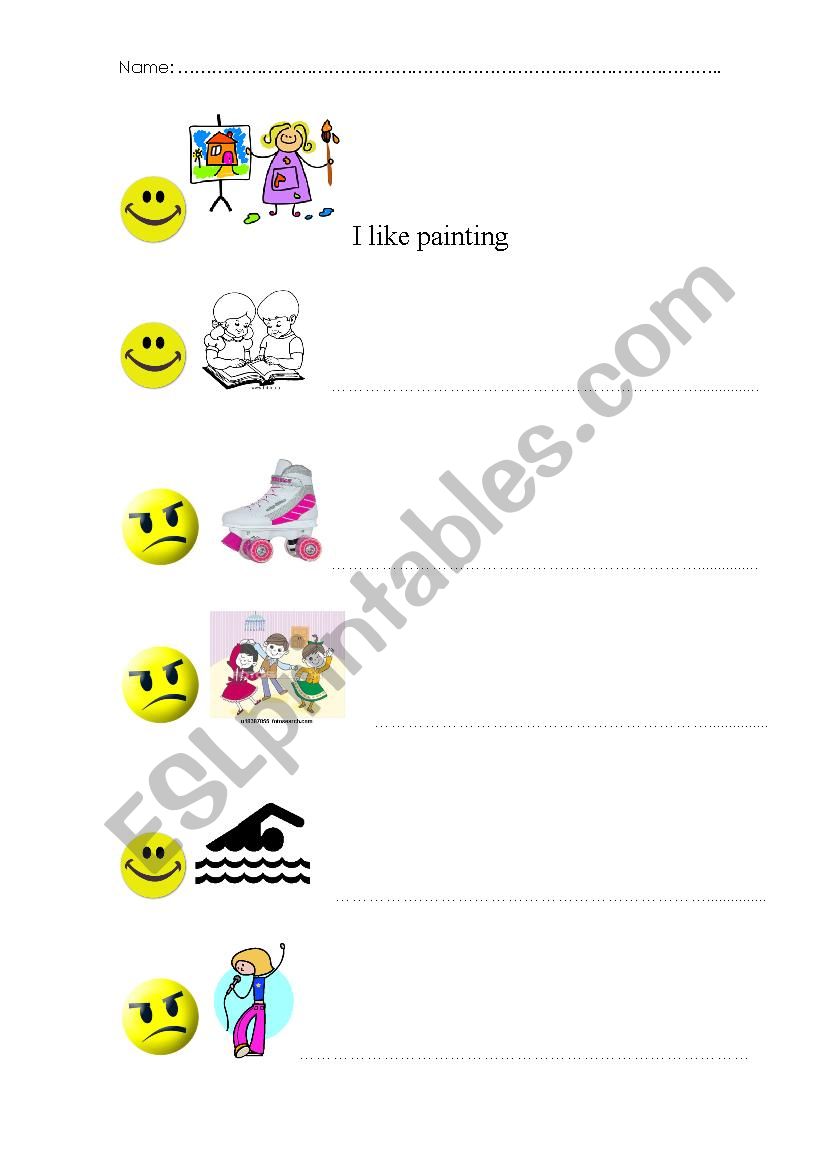
I like + ing ESL worksheet by railite
Like to or Like ing? Last updated on November 10, 2023 My last post here on English Coach Online explored the defining features of gerunds and to-infinitives and the differences between them. In that post, I promised to examine the like to or like ing dichotomy in the following post.

I like to vs. I like ing 의 차이 뉘앙스로 완전 정복! YouTube
Grammar test 1 Verbs followed by '-ing' or by 'to' + infinitive 1: Grammar test 1 Read the explanation to learn more. Grammar explanation A verb can be followed by another verb. The second one usually needs to change into the - ing form or the to + infinitive form. Which form you need depends on what the first verb is.
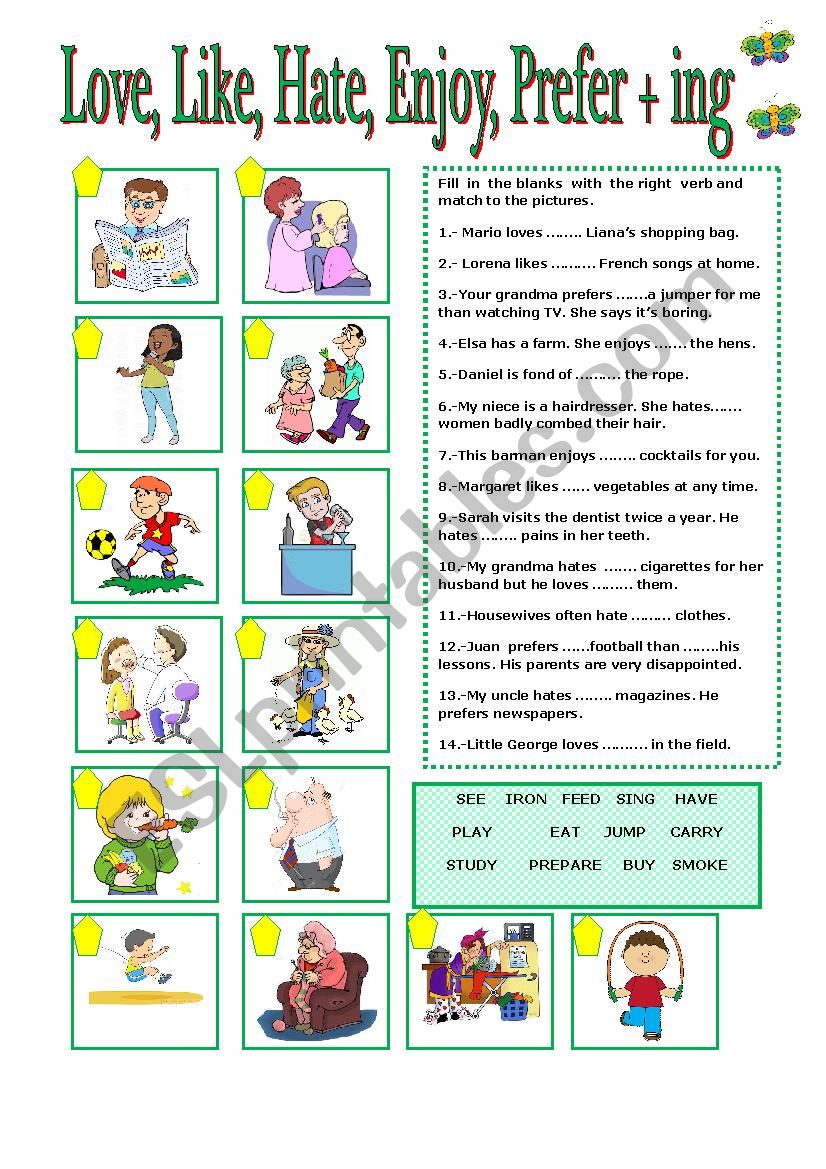
Like Love Ing Worksheet Riset
The difference in meaning is often small. The -ing form emphasises the verb itself. The to- infinitive puts the emphasis more on the preference for, or the results of, the action. Compare Hate, like, love, prefer with would or should When hate, like, love and prefer are used with would or should, only the to- infinitive is used, not the -ing form:

Pin en La ropa en ingles
Verbs after LIKE With the verb LIKE there are two ways of putting a verb after it. You can say: I like to sleep. (This is like + infinitive - which we have already seen) But with the verb LIKE, we frequently use a verb ending in ING after it. I like sleeping. Sleeping is a verb ending in ING. Another example. You can say:

Like verb ing Ficha interactiva
106K views 6 years ago The most common mistakes of English grammar and vocabulary I like reading or I like to read? I like to wear slippers at home. I like having a moustache. In this video.
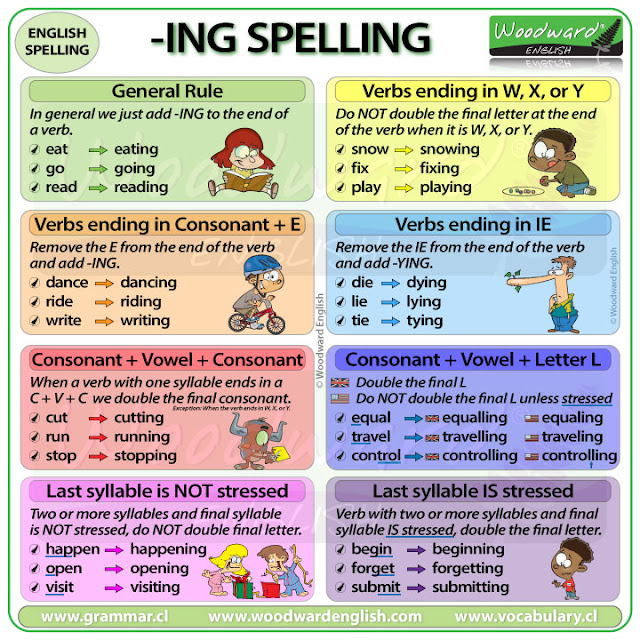
Spelling Rules ING Effortless English
We can use like, don't like , love , hate and don't mind + ing to say how we feel about an activity. I like going to the park. She loves playing games. They hate cleaning. How to use it Love means it's great. Like means it's good. Don't mind means it's OK. Don't like means it's bad. Hate means it's really bad! We love using the computer.

Like ing Interactive worksheet English Homework, English Grammar For Kids, English Phonics
In this English grammar lesson we look at what verb goes after LIKE.First we learn about infinitives (to + verb) and when two verbs are together, the second.

Like + VerbING, Like + Infinitive, Enjoy + VerbING YouTube
On utilise pour des situations spécifiques V + TO, car l'accent se porte sur l'action, son résultat. Avec des situations génériques, donc pas spécifiques, on utilise V + ING, car l'action se porte sur le processus. En règle général, la structure en -ING réfère à l'action. On se place au coeur de l'action.

Like + ing Interactive worksheet
Verbs + -ing Some verbs in English are followed by another verb in the -ing form. The most common of these verbs are verbs of liking and disliking: love, like, enjoy, don't mind, don't like, hate.If we use another verb after these verbs, it often takes the -ing form. I love going to the gym.; I like reading.; I enjoy travelling.; I don't mind cooking.

Verb ing spelling rules examples Spelling rules, Teaching english, Teaching spelling
4 Answers Sorted by: 2 Both of these are acceptable and have the same meaning: I don't like to discuss politics 'like' followed by to-infinitive of verb 'discuss' I don't like discussing politics 'like' followed by gerund of verb 'discuss' Hate, like, love, prefer (Cambridge Dictionary) Share Improve this answer Follow